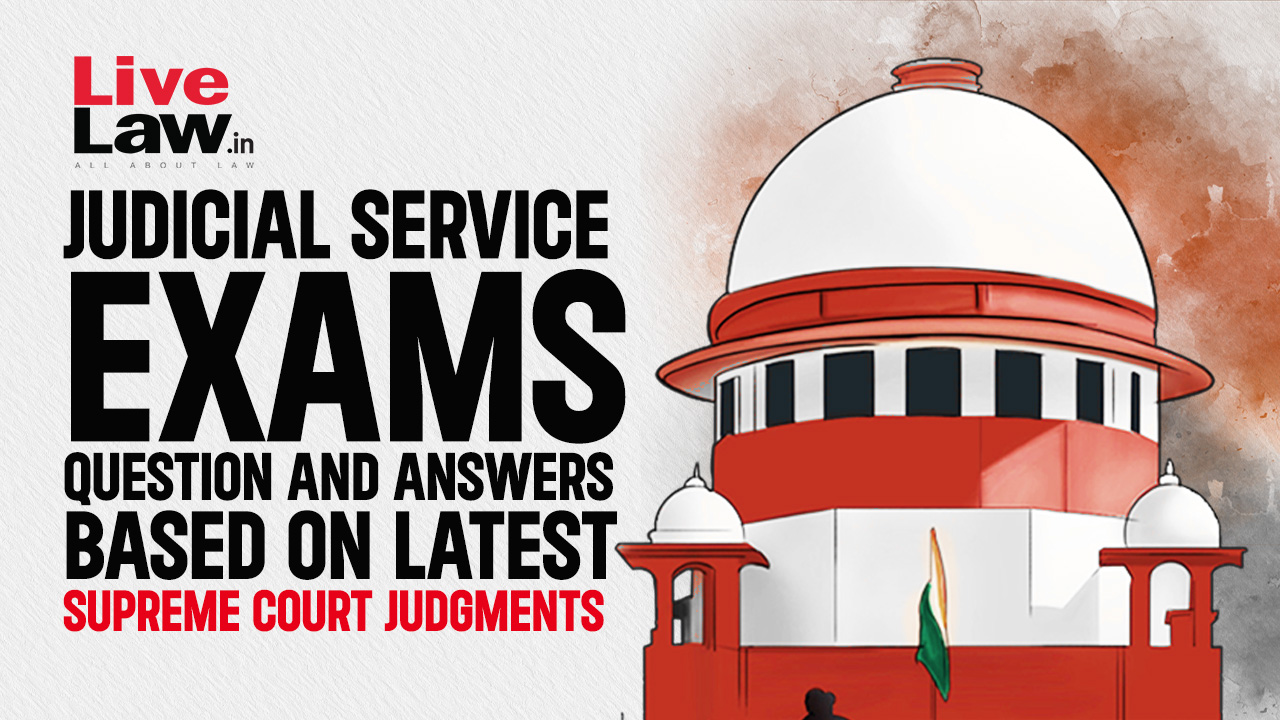 |
|
The provided text presents a series of multiple-choice questions (MCQs) based on recent Supreme Court judgments in India. Each MCQ focuses on a specific legal point, offering a scenario and several possible answers. The correct answer is given, along with a concise explanation referencing the relevant Supreme Court case and citation. The questions cover a broad range of legal areas, including criminal procedure (Section 197 CrPC, Section 319 CrPC), civil procedure (Order XXIII Rule 3 CPC, Section 11 CPC), specific relief (Section 22 of the Specific Relief Act), the Transfer of Property Act (Section 58(c) TPA), the Negotiable Instruments Act (Section 148 NIA), the Indian Penal Code (Section 300 IPC), and the Arbitration & Conciliation Act (Section 11(6)). The depth of legal knowledge required to answer these questions accurately demonstrates a high level of understanding of Indian legal jurisprudence. The article's format clearly targets law students preparing for examinations, providing valuable practice questions based on actual Supreme Court precedents. The structure, with clear question-answer-explanation pairings, makes it effective for learning and review.
A closer examination of the individual questions reveals the complexity and nuance of Indian legal interpretation. For example, the question on Section 197 CrPC highlights the limitations of immunity for public servants. The Court's ruling that filing false cases and fabricating evidence are not part of official duties clarifies a vital distinction, emphasizing accountability within the police force. Similarly, the question regarding compromise decrees underscores the balance between finality and fairness. While compromise decrees generally aim for speedy resolution, the possibility of recalling a decree due to a breach of terms provides a safeguard against exploitation or injustice. The question concerning specific performance further clarifies the procedural aspects of executing such decrees, specifying that a separate application for possession is not always required. This detail is crucial for legal practitioners and students alike, avoiding unnecessary procedural complexities.
The remaining questions further demonstrate the practical application of key legal principles. The issue surrounding 'mortgage by conditional sale' highlights the importance of careful drafting of legal documents. The Supreme Court's clarification on this type of mortgage reinforces the need for precision in contract law. The discussion of the Henderson doctrine emphasizes the principles of res judicata, preventing repetitive litigation and promoting judicial efficiency. The question on Section 148 of the Negotiable Instruments Act clarifies the liability of company signatories, distinguishing between the authorized signatory and the drawer of the cheque. This distinction is vital for understanding corporate liability and individual accountability. Finally, the questions related to the Indian Evidence Act and Section 319 CrPC illustrate the complexities of criminal procedure, particularly regarding the admissibility of evidence and the summoning of additional accused. The focus on these specific case details emphasizes the importance of understanding case law and applying legal principles to practical scenarios, making this article a valuable resource for those studying Indian law.
In conclusion, this collection of MCQs serves as a valuable tool for legal education and exam preparation. The questions are rigorously crafted, accurately reflecting the current legal landscape in India. The inclusion of case citations provides students with the ability to delve deeper into the subject matter, furthering their understanding of legal precedent. The diverse range of legal areas covered ensures comprehensive preparation. The inclusion of the author's email address for feedback and suggestions adds a personal touch and underscores the commitment to improvement and engagement with the legal community. The format is highly effective for practical application and self-assessment, making it a valuable resource for anyone seeking to improve their understanding of Indian legal principles.
Source: Important MCQs Based On Latest Supreme Court Judgments For Law Examinations
